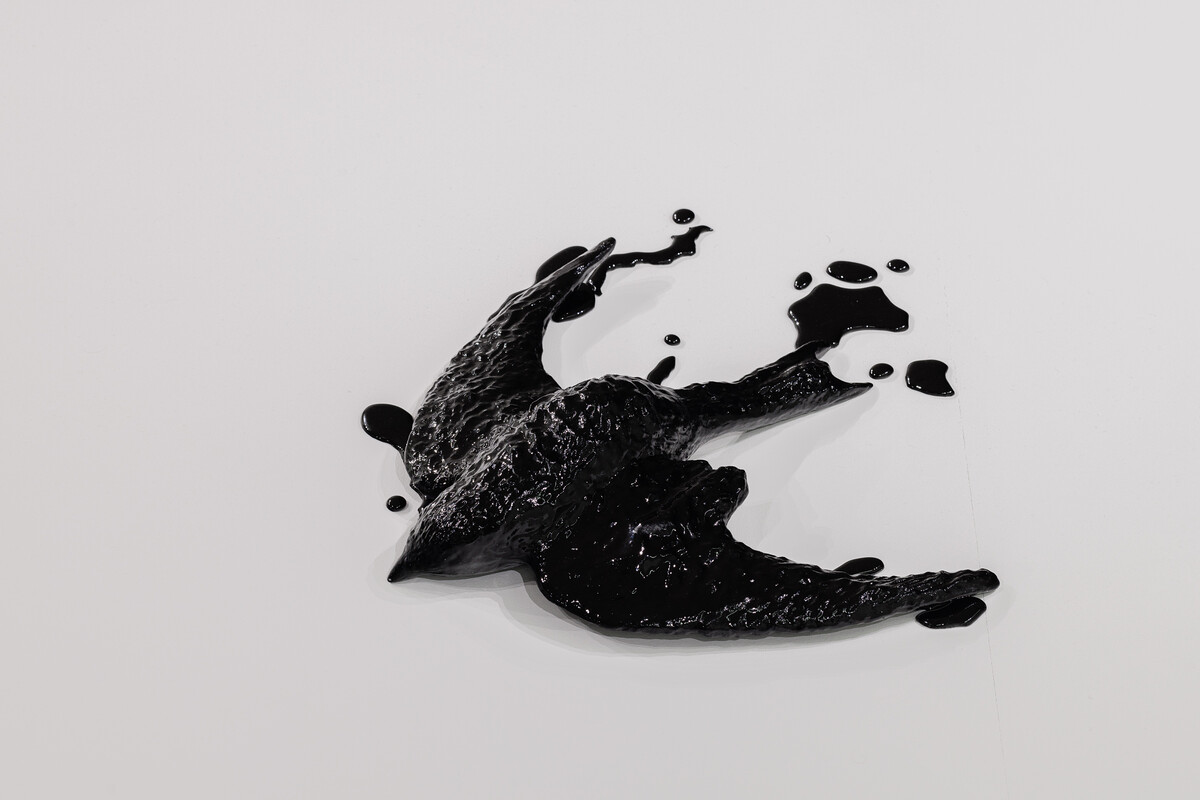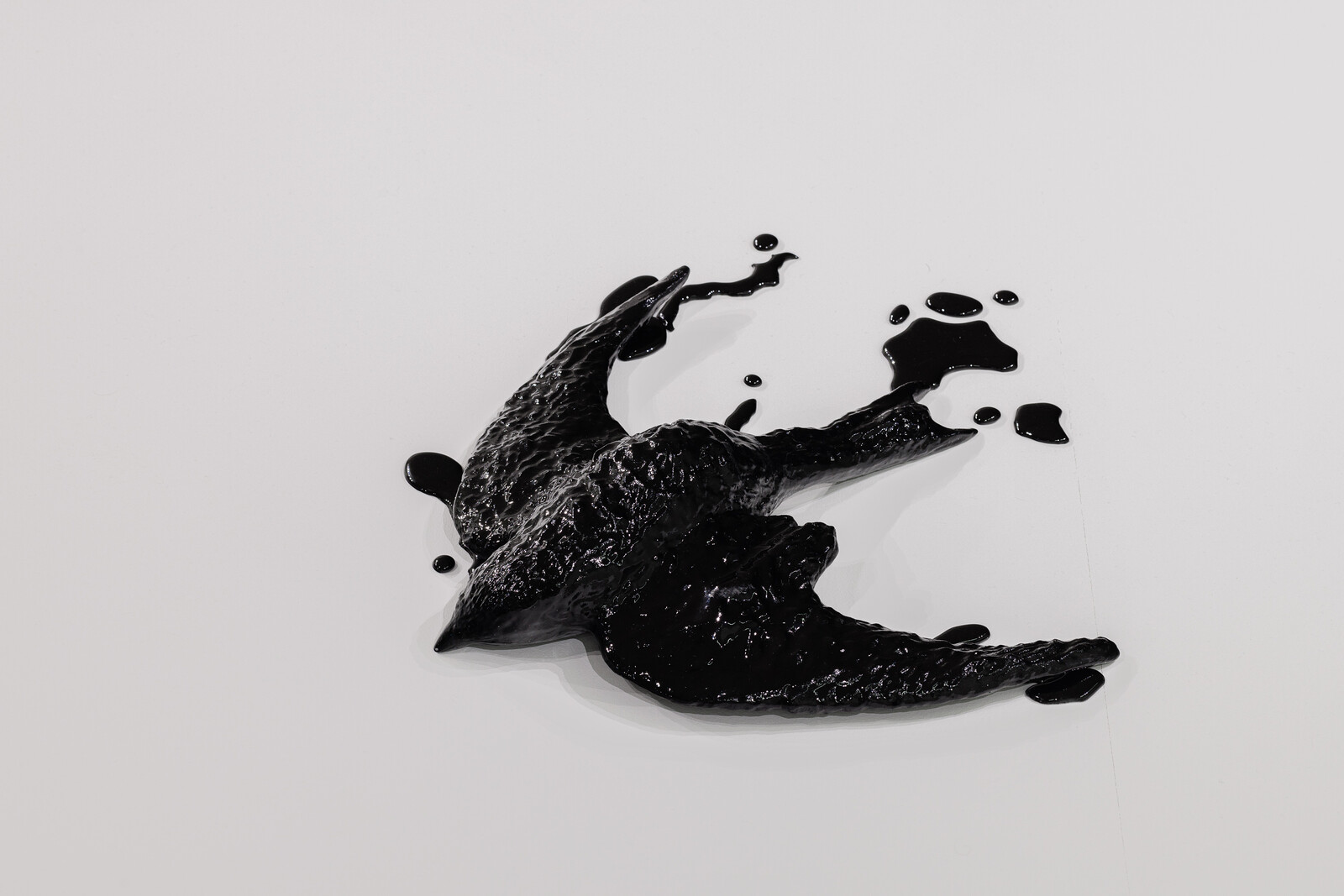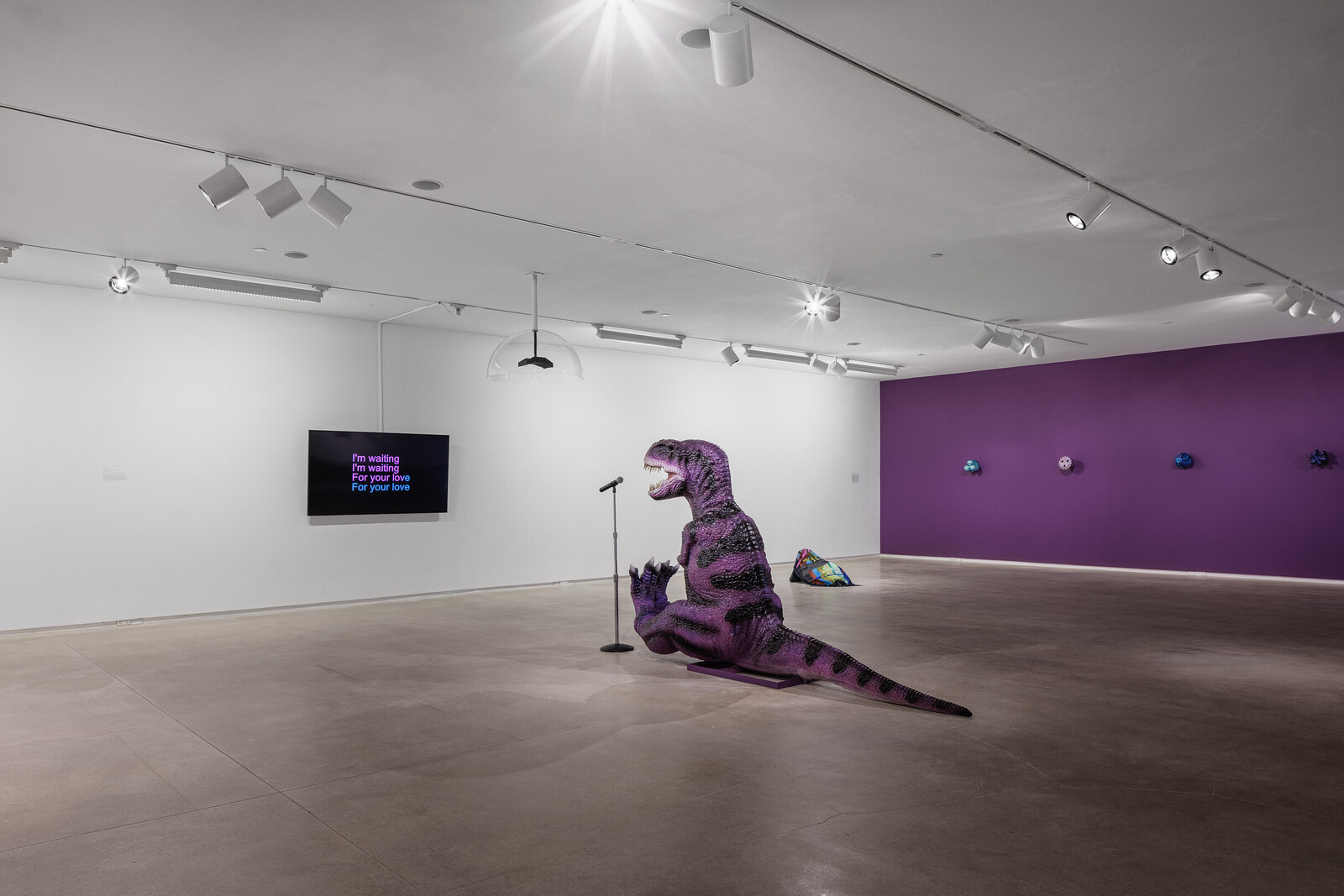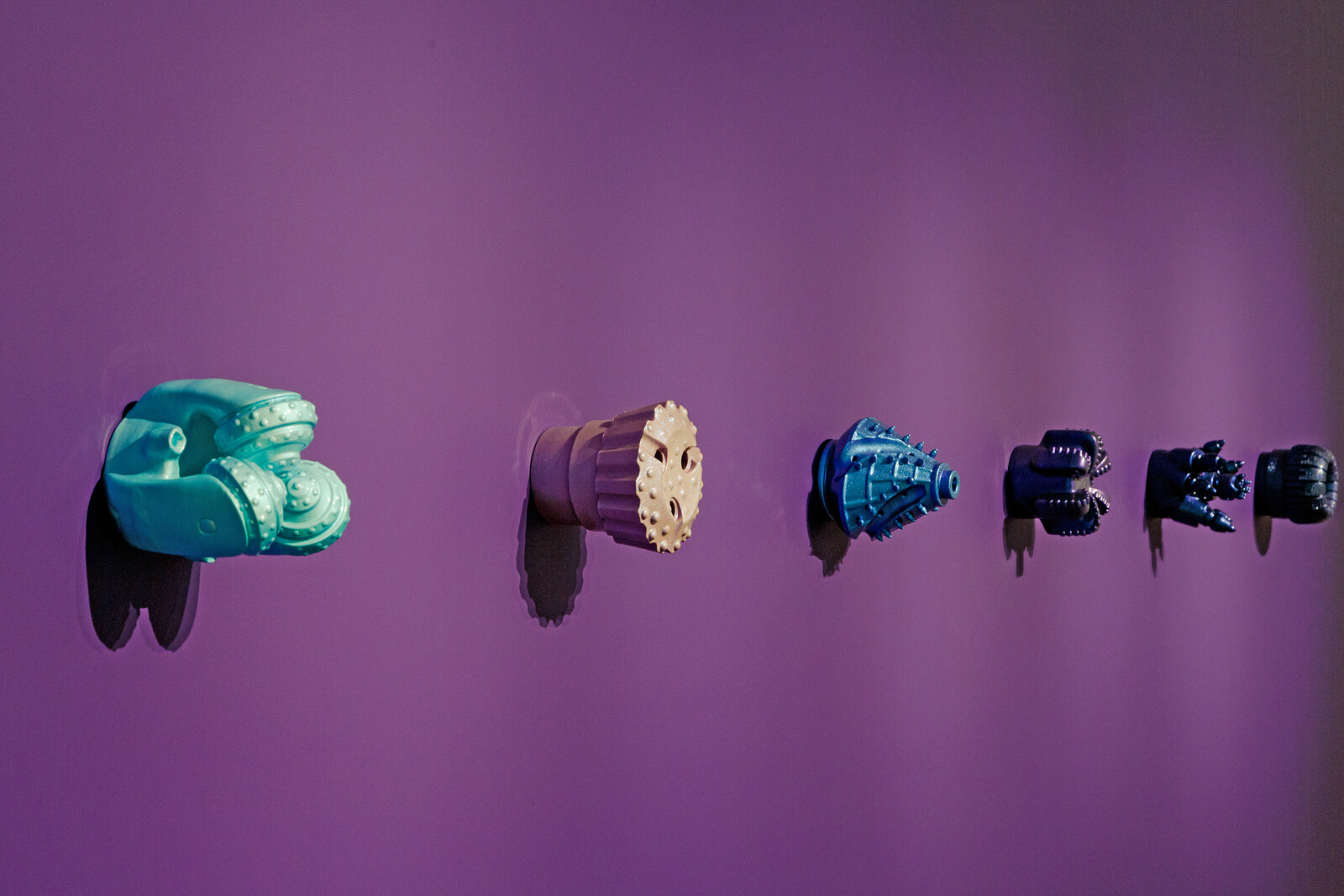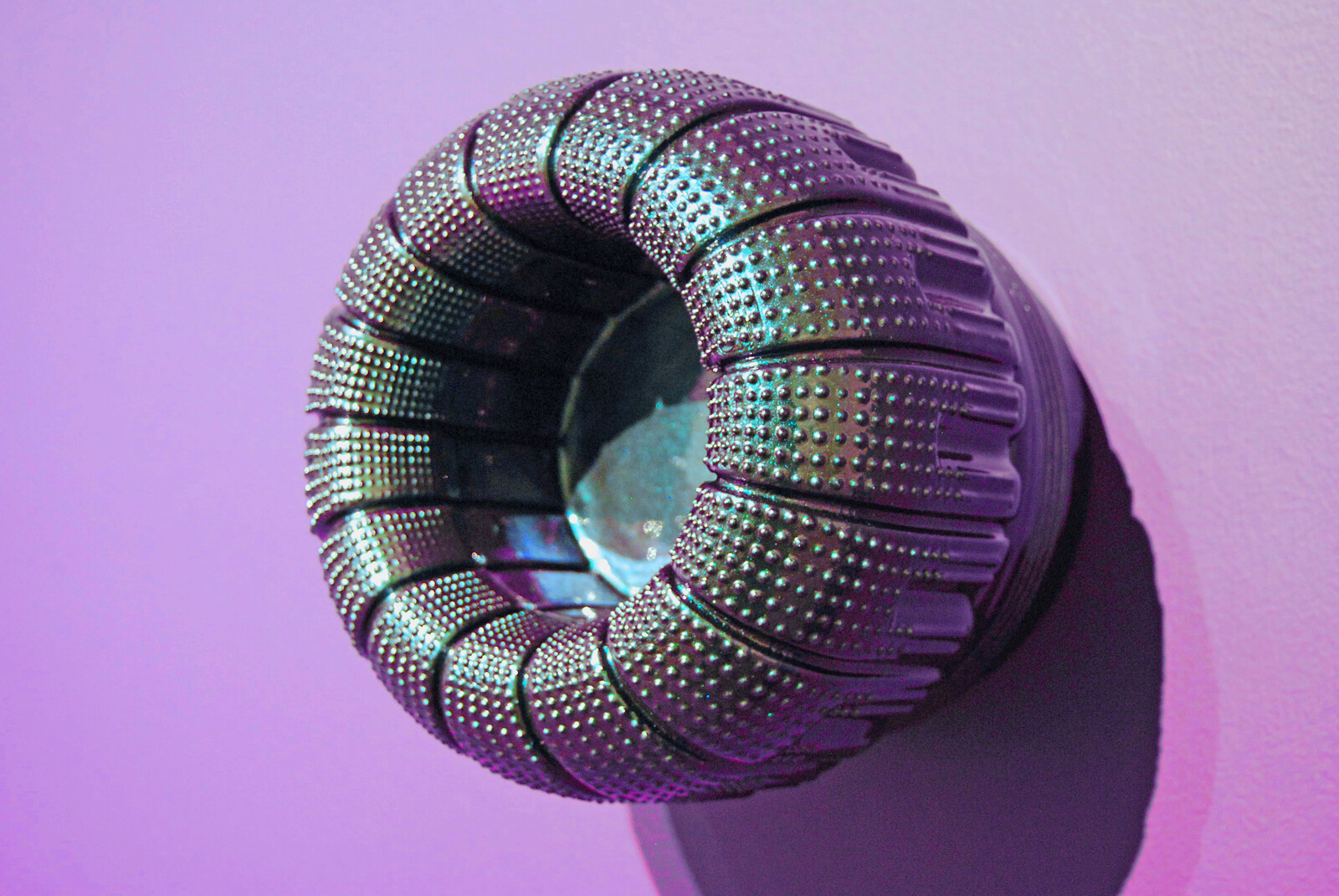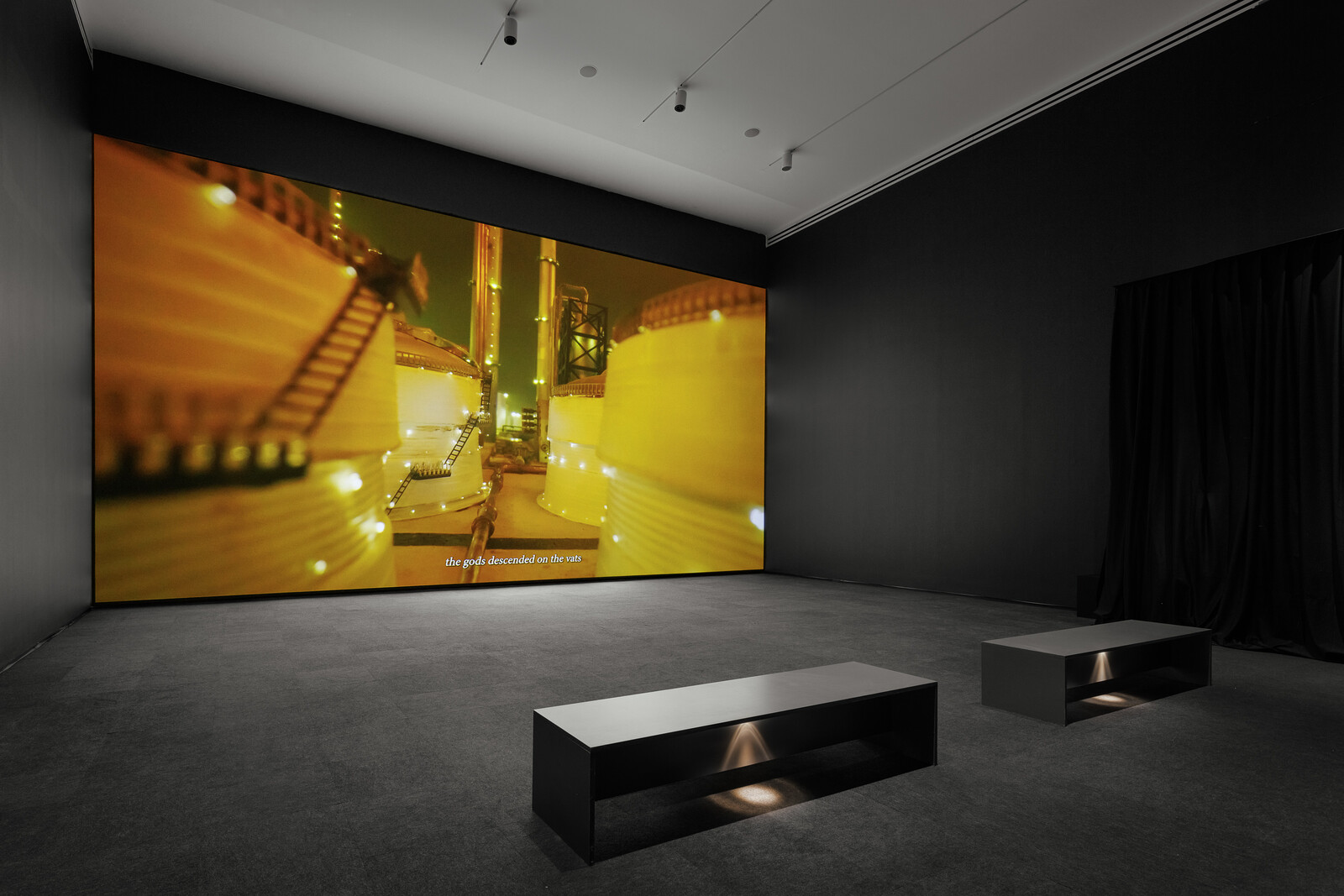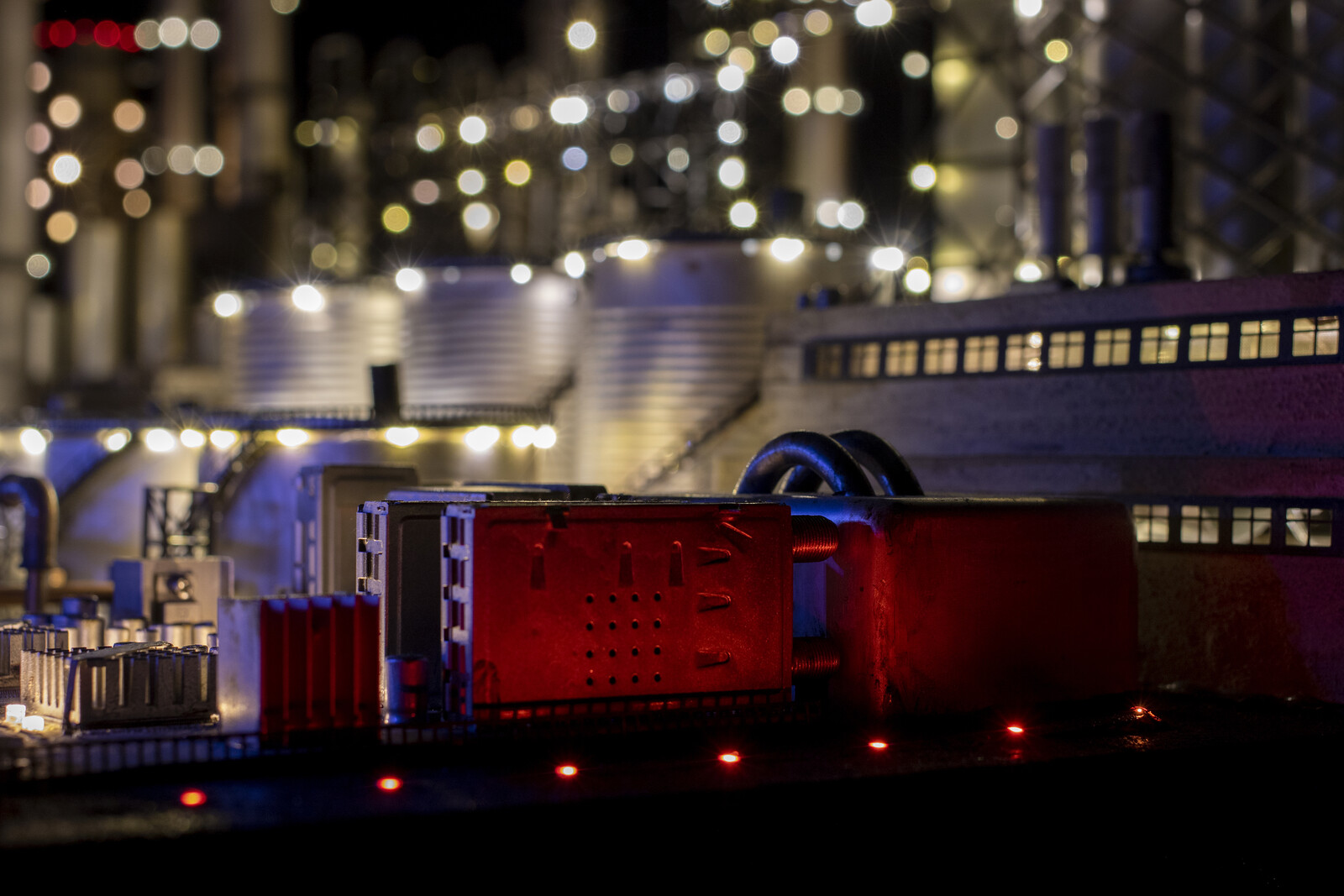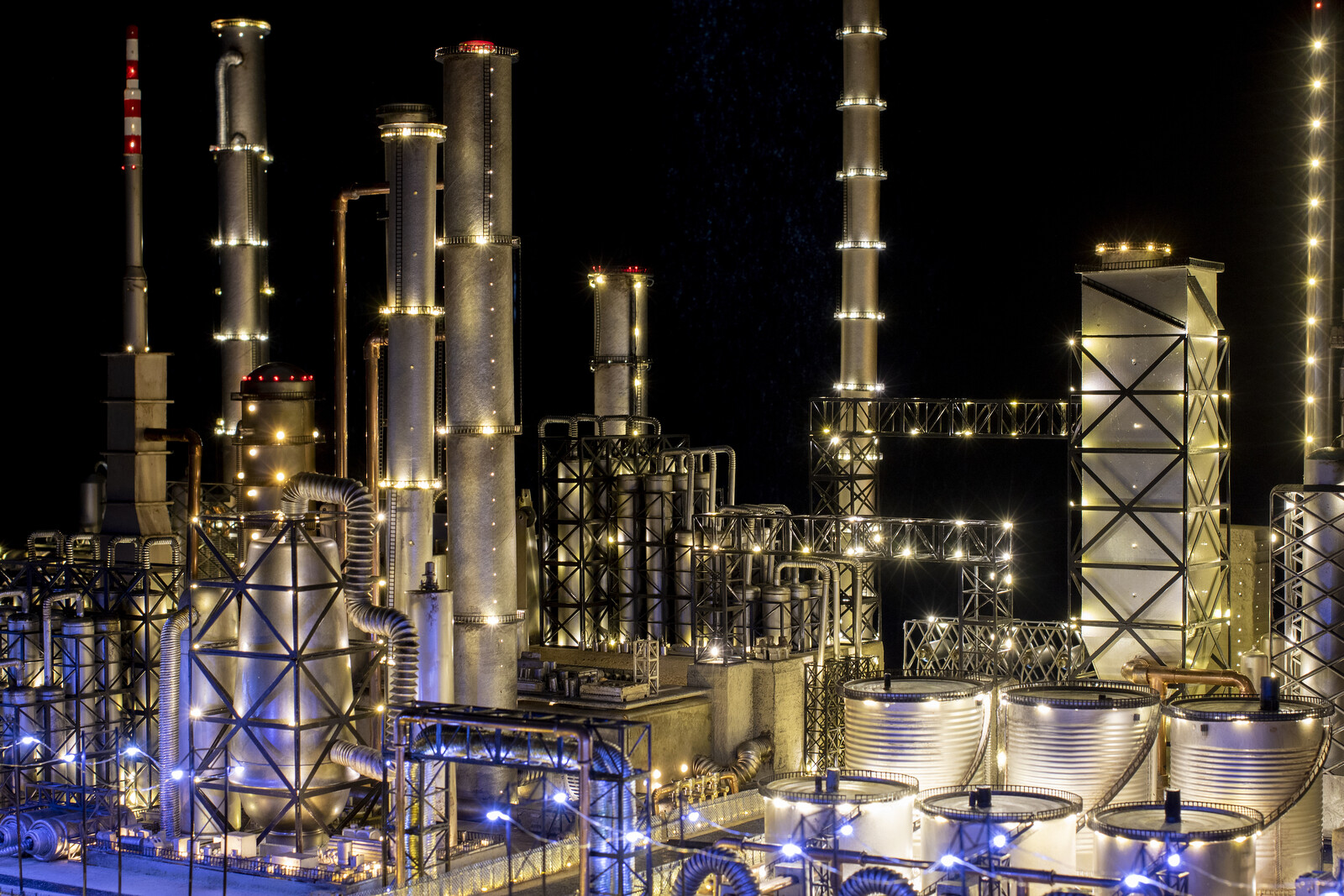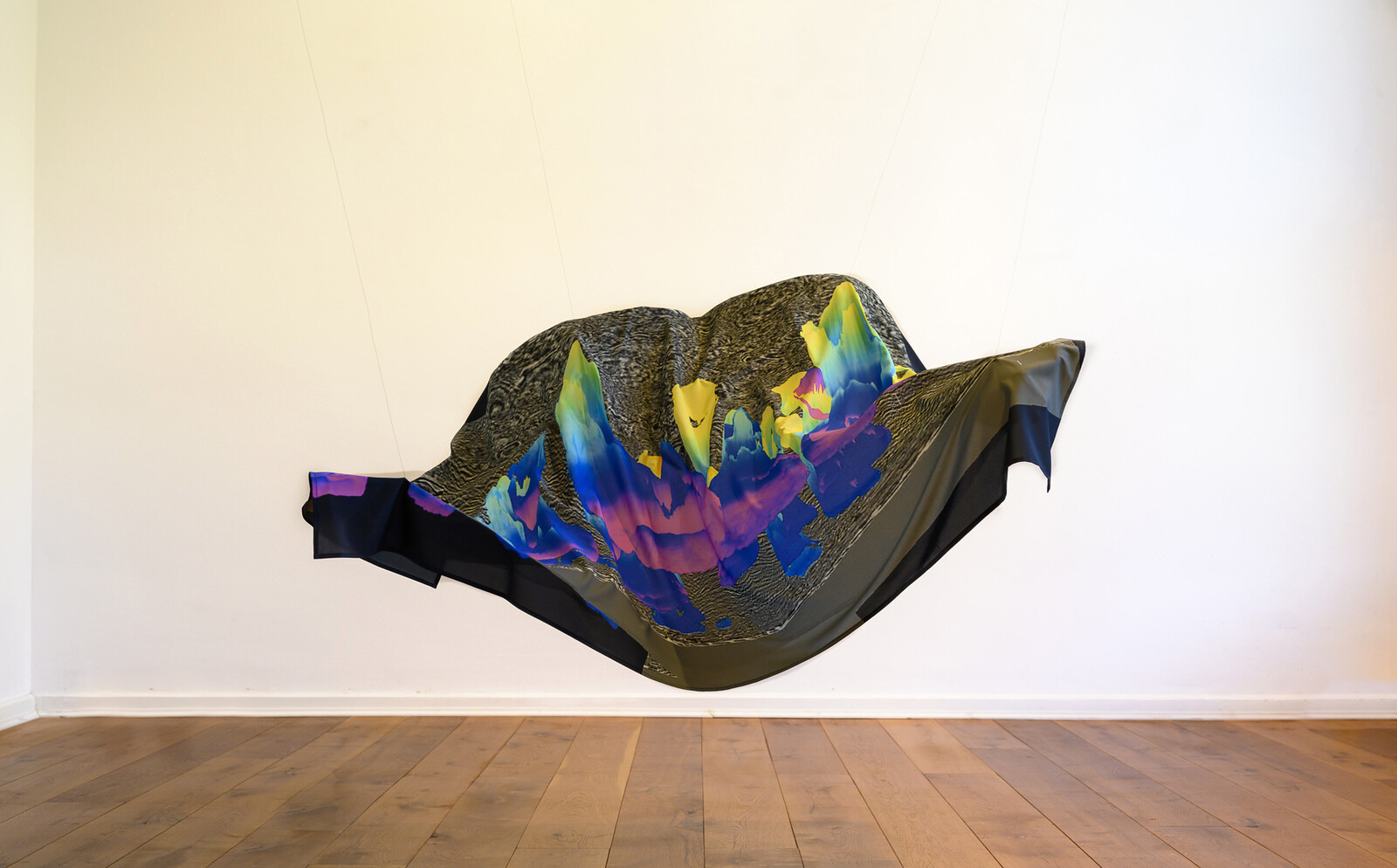Kuwaiti artist Monira Al Qadiri is a prophet of doom with an ear for a joke. Sarcasm and puns are hallmarks of her solo exhibition at Houston’s Blaffer Art Museum—starting with its title, which replaces “divine” with a near-homonym that nods to the petroleum industry. Combining pieces made in the last decade with new commissions, “Refined Vision” presents hyper-realistic sculptures alongside installation and video. The tone is uniformly satirical, except for one new piece (Onus, 2022) based on press photographs of dead birds drenched in petroleum. It is the only work to state directly the real-world consequences of the oil industry and, as such, looks a little out of place in an exhibition that revolves around that industry’s enticing iconography.
Spectrum (2016) is a series of 3D-printed sculptures, painted in iridescent car paint, whose shapes are based on the heads of oil drills. Pointing out that oil and pearls share the same color scheme on the opposite side of the dichroic color spectrum, Al Qadiri presents these precious objects as jewels in the crowns of the sovereigns who control oil. Deep time is crucial to Al Qadiri’s analysis of petroleum, and many of her works derive from her absurdist conflation of prehistoric lifeforms with contemporary comforts. At the center of the exhibition hall is Seismic Songs (2022), a rubber dinosaur singing karaoke: his melancholic voice begs humanity to remember his extinct species’ contribution to consumer abundance. In RESERVOIR (2019), 3D simulations of oil reservoirs are printed on headscarves that float on pieces of string, imitating the contour of the oil-rich landscapes.
Presented in its own black box is Crude Eye (2022), an expansive video with an ominous, Vangelis-like soundtrack by the artist’s sister, musician Fatima Al Qadiri. In this video—the centerpiece of the show—a camera floats through an intentionally shabby-looking maquette of a refinery, while the processed background voice intones a poem about the edifice’s beauty and oil’s almost divine powers. It is a mesmerizing piece, partly thanks to its ambiguity: one is never sure where the grandeur of the narration and the camerawork ends, and irony begins. Crude Eye invites the viewer to imagine that the dominant political theology of the present moment, based on liberal beliefs and economic instruments of disseminating them, has shifted towards a more materialistic worldview. There is no God but oil and gas, the video sardonically implies—as do many of Al Qadiri’s other works in this show.
This thesis is made all the more convincing by the fact that Crude Eye has been commissioned with funds from Cynthia Woods Mitchell Center for the Arts at the University of Houston. Cynthia Woods Mitchell was the wife of the late George P. Mitchell, hydraulic fracturing engineer and billionaire, who made a fortune out of pumping natural gas in Barnett Shale, Texas. Talk about divine intervention! On a more serious note, there is certainly a continuity between the notion of “God-given rights and liberties,” a formulation popular with American conservatives, and contemporary oil-based regimes in the Middle East, Central Europe, and other geographies that assert their legitimacy through appeals to higher power. The exhibition text hints at a connection between Texas and Kuwait, but does not explicitly develop it— perhaps wisely, given that these connections will be obvious to many viewers.
An earlier video, Behind the Sun (2013), shown on a TV screen in the next room, juxtaposes amateur footage of the burning oil fields in Kuwait during the Gulf War with spiritual speeches from Islamic television programs. The end result looks a lot like Werner Herzog’s Lessons of Darkness (1992), with Al Qadiri, in her words, “reclaiming the context.” To a contemporary ear, Herzog’s commentary on the burning of Kuwaiti oil wells after the first Gulf War is as poetic—and at times as prophetic—as the writings of Medieval mystics. The voice in Al Qadiri’s videos, therefore, does not contradict so much as echo the one in Herzog’s. In doing so, it underscores a lesson: those in the West can seek to escape capitalism by looking eastwards, if they are so inclined, but petroleum’s global reach will ultimately prove more powerful than local cultural or religious traditions.
The question, uneasy and unanswered, is what happens after this god is dead. In a 2019 lecture-performance Petrochemicals in Purgatory, Al Qadiri paints the future of a post-apocalyptic planet that is visited by aliens, who use human remains exactly the way humans have plundered the reservoirs of extinction. The realistic alternative is much more boring, with industries collapsed, trade in a downward spiral, and painful withdrawal from the addictions to a fast life of travel and leisure.
